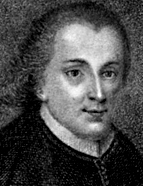

The Institutiones, although lacking an explicit a priori intent, often describe the history of legal institutions with similar theoretical and methodological concerns (P. Merêa, op. cit., p. 24). For the jurist influenced by the school of natural law and the usus modernus pandectarum (Institutiones Juris Civilis..., IV, 1828 [1793], [p. iv]), it was paramount to eliminate the over-reliance on Roman law, while avoiding the neglect of natural law, the law of nations, and the history of law. His work emphasised the importance of customary practices, the legal forums of different peoples, and, above all, the diachronic changes affecting legislators, magistrates, and legal scholars (Institutionum Juris Criminalis..., 1794, [pp. viii-xii]). Another work of a partially historiographical nature is the Dissertação historico juridica sobre os direitos e jurisdicção do Grão Prior do Crato, e do seu provisor [Historical-legal Dissertation on the Rights and Jurisdiction of the Grand Prior of Crato and his Provisor], which was originally written for Melo Freire’s personal and professional use but ultimately became a significant contribution to the history of the institution — a subject previously explored by Fr. Lucas de Santa Catarina and later by José Anastácio de Figueiredo. Melo Freire was motivated by a belief in the pragmatic and instructive value of history: understanding the historical responsibilities of any position was, in his view, essential to properly executing the duties that would later be assigned to him (Dissertação... [Dissertation...], 1808, pp. v-vii).
Pascoal de Melo was at the centre of another controversy, where the use of historical analysis of laws became a tool in a political dispute (L. R. Torgal, op. cit., p. 27; J. Esteves Pereira, O Pensamento..., 2005, pp. 243 ff.). As part of a royal initiative to reform the outdated Philippine Ordinances and the work of the Board established in 1778 for this purpose, Melo Freire was relieved of his teaching duties in 1783 and tasked with revising Books II and V, concerning public and criminal law (M. J. Almeida Costa, História do Direito Português [History of Portuguese Law], 2018, pp. 421-423). Completed in 1789, Melo Freire’s project for a “New Code” of public law was submitted for review but was ultimately censored by António Ribeiro dos Santos. Ribeiro dos Santos, who supported the revival of the old forums — the traditional historical institutions of political representation — and the codification of "fundamental laws," opposed the document due to its connection to enlightened despotism and Pombaline jusnaturalist political rationalism (J. Esteves Pereira, “Melo Freire…”, 1991, col. 785; P. Ferreira da Cunha, O Pensamento..., 2006, pp. 22-24). With the outbreak of the French Revolution, the already limited reformist movement (N. E. Gomes da Silva, História..., 2000, pp. 404-405) disappeared. As a result, the proposals to reform public and criminal law were never implemented and remained unknown until 1844 and 1823, respectively. Since then, there have been conflicting interpretations of Melo Freire's historical role. His work clearly demonstrates a commitment to the principles of absolute monarchy, in line with the assumptions of the Deducção Chronologica (1767) (A. M. Hespanha, "Historiografia jurídica... [Legal historiography...]", 2019, pp. 22-23), and a rejection of any historical basis for contractualist ideology or for loosening political control over thought (N. E. Gomes da Silva, op. cit., p. 406). It is also worth noting that the Instituições [Institutions] were added to the index of banned books in 1836 (B. Aranha, “Paschoal…”, 1894, p. 146). However, Paulo Merêa observed (op. cit., p. 24) that, perhaps paradoxically, by the end of the 19th century, Melo Freire was remembered as the "master of the new liberal generation" by figures such as António da Costa, Latino Coelho, and José de Arriaga. This recognition aligned with the favour he had already received from early liberal figures such as Borges Carneiro and Manuel Fernandes Tomás (N. E. Gomes da Silva, op. cit., p. 406). This was largely due to their positive view of Pombal's reformist and regal policies (F. Catroga (F. Catroga, “Positivistas e Republicanos” [Positivists and Republicans], 1996, pp.
This work is financed by national funds through FCT - Foundation for Science and Technology, I.P, in the scope of the projects UIDB/04311/2020 and UIDP/04311/2020.
